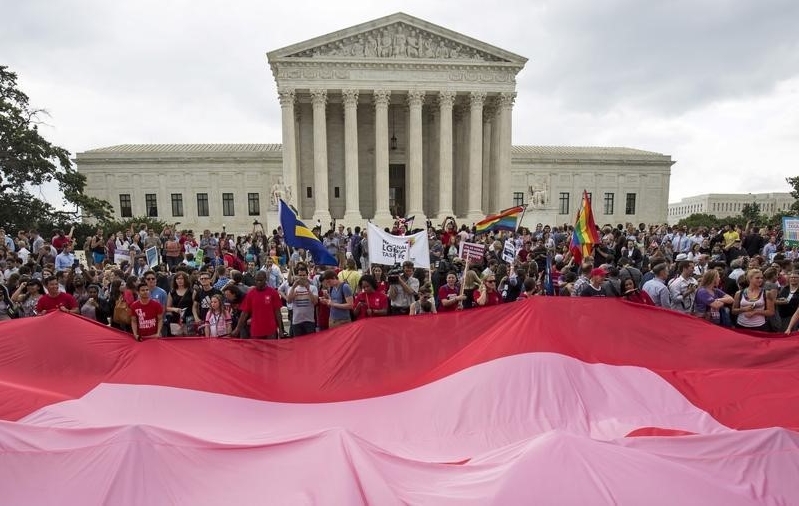
The U.S. Supreme Court on Monday rejected a challenge to a law that hits the justices close to home: a ban on protests on the marble plaza in front of the courthouse where they hear cases and issue rulings.
The court left in place a 2015 ruling by the U.S. Court of Appeals for the District of Columbia Circuit, which said the 1949 federal law prohibiting the protests does not violate the guarantee of freedom of speech under the U.S. Constitution's First Amendment.
The court often attracts protesters, particularly on days when it hears cases on hot social issues such as abortion or gay rights. Protesters are allowed to gather on the sidewalk in front of the courthouse but not on the plaza, which is considered part of the courthouse grounds and is reached by walking up several steps from the sidewalk.
A Maryland man named Harold Hodge challenged the law after being arrested in 2011 for standing in the plaza with a 2-by-3-foot (60-by-90 cm) sign hanging from his neck stating, "The U.S. Gov. Allows Police To Illegally Murder And Brutalize African Americans And Hispanic People."
Hodge was approached by a police officer who told him he was violating the law, issued him three warnings to leave, then handcuffed and arrested him when he refused, according to court papers.
The law made it unlawful "to parade, stand or move in processions or assemblages in the Supreme Court building or grounds" or to "display in the building and grounds a flag, banner or device designed or adapted to bring into public notice a party, organization or movement."
Hodge's suit said he wanted to "engage in peaceful, non-disruptive political speech and expression" and that the law violated his First Amendment rights.
The appeals court ruling against Hodge was written by Judge Sri Srinivasan, who President Barack Obama considered nominating to the Supreme Court following the February death of Justice Antonin Scalia before picking the same appeals court's chief judge, Merrick Garland.
Srinivasan wrote that the plaza is not a traditional public forum. The government "can impose reasonable restrictions on speech as long as it refrains from suppressing particular viewpoints," Srinivasan wrote, adding that protesters can still make their voices heard from the sidewalk area.
The appeals court reversed a 2013 ruling by U.S. District Judge Beryl Powell who wrote that the law was "unreasonable, substantially overbroad and irreconcilable with the First Amendment."






